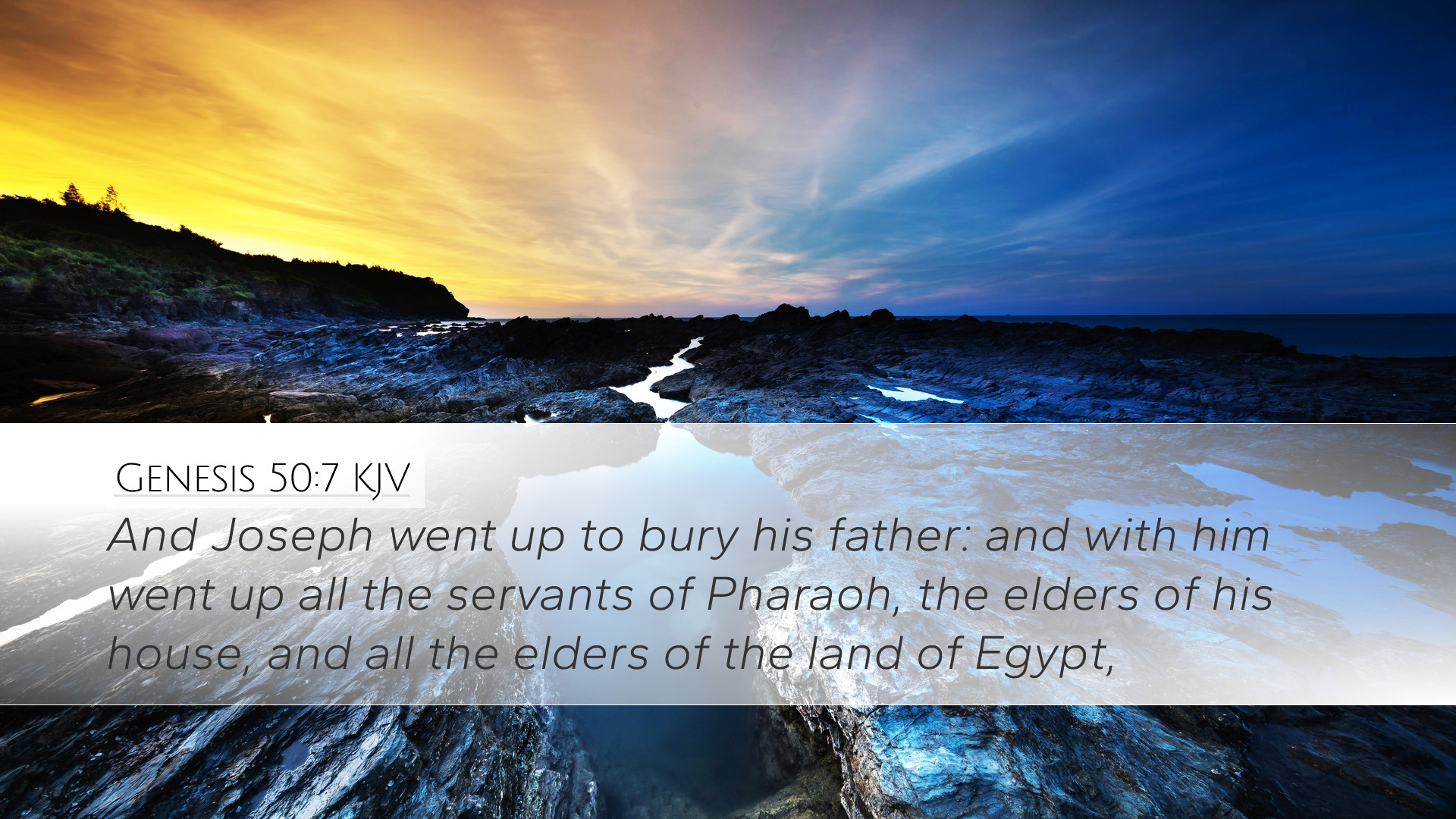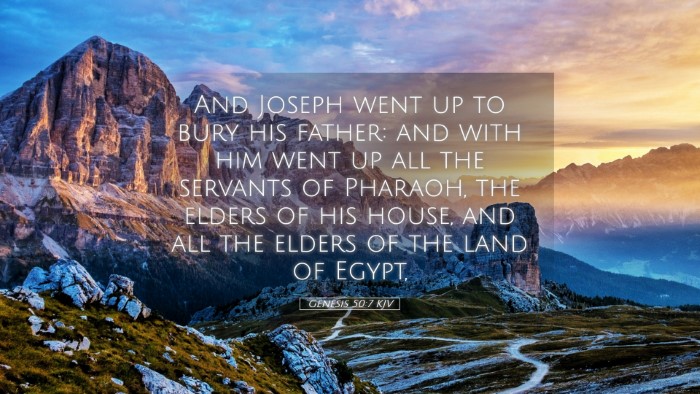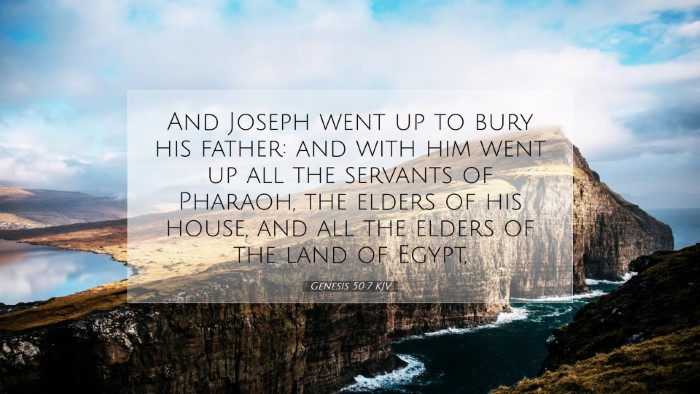Commentary on Genesis 50:7
Verse: "And Joseph went up to bury his father: and with him went up all the servants of Pharaoh, the elders of his house, and all the elders of the land of Egypt," (Genesis 50:7, KJV)
Introduction
This passage occurs at the conclusion of the narrative concerning Jacob and his beloved son Joseph. The death of Jacob, or Israel, is a pivotal moment that brings together major themes of family, loyalty, and the fulfillment of God's covenant. This commentary synthesizes insights from established public domain commentaries to elucidate the theological and practical implications of Genesis 50:7.
The Context
The scene is set shortly after the death of Jacob, which serves as a transition in the narrative. Joseph’s deep love for his father is evidenced as he seeks to honor him even in death. This moment signifies not only personal grief but also the restoration of familial bonds that had once been fractured due to jealousy and betrayal.
Analysis of the Characters
-
Joseph:
Joseph's role in this verse is one of respect and responsibility. As a prominent figure in Egypt, he shows his genuine love for his father by not only mourning but also arranging a state funeral. His actions reflect his character and position, demonstrating humility and honor despite his power.
-
Pharaoh's Servants:
The participation of Pharaoh’s servants and the elders of Egypt signifies the high regards in which Jacob is held, as well as Joseph's esteemed place in Egyptian society. Matthew Henry notes that such honor from the Egyptian leaders was a testament to the respect Jacob garnered throughout his life.
Theological Implications
Joseph's journey to bury Jacob is steeped in theological significance. It underscores the biblical principle of honoring one’s father and mother, aligning with the commandments that speak to the importance of familial reverence. Albert Barnes emphasizes that this event shows Joseph’s commitment to his familial duties, fulfilling not only his obligations as a son but also as one who recognizes the sovereignty of God throughout his life and family history.
Cultural Significance
The Egyptian context is crucial for understanding this passage. The elaborate burial customs of ancient Egypt contrast starkly with the Hebrew practices. Joseph's decision to adhere to Egyptian mourning traditions while honoring his father’s wishes for burial in Canaan highlights a bridging of cultures. Adam Clarke draws attention to how this reflects Joseph’s dual identity as both an Egyptian leader and a Hebrew son.
Symbolism of the Burial
The act of burial itself carries deep symbolism. It represents not only the finality of life but also the hope of resurrection and the promise of God’s covenant concerning the land of Canaan. Jacob’s wish to be buried in his homeland symbolizes the importance of heritage and divine promises. As noted by Barnes, this passage reiterates a critical theme throughout Genesis—the significance of the land promise made to Abraham, Isaac, and Jacob.
Lessons for the Faithful
-
Importance of Family:
This passage serves as a reminder for believers of the importance of family bonds and honoring our parents, particularly in times of grief.
-
Faithfulness through Adversity:
Joseph remained faithful to his family's traditions and needs despite the position and power he obtained in Egypt. This is a poignant lesson in prioritizing faith and family over worldly status.
-
God's Sovereignty:
Joseph’s journey reflects the overarching theme of God’s sovereignty over history and individual lives, as reiterated by Clarke, showing how God weaves the lives of his people for His purpose.
Conclusion
Genesis 50:7 encapsulates the culmination of a significant familial narrative, marked by love, respect, and obedience to God's promises. As Joseph honors his father in death, believers are reminded of the importance of legacy and the ever-present themes of redemption and reconciliation. This verse offers profound insights not only for personal reflection but also for deeper theological understanding, serving as a rich tapestry of familial love, duty, and God’s unwavering covenant.


